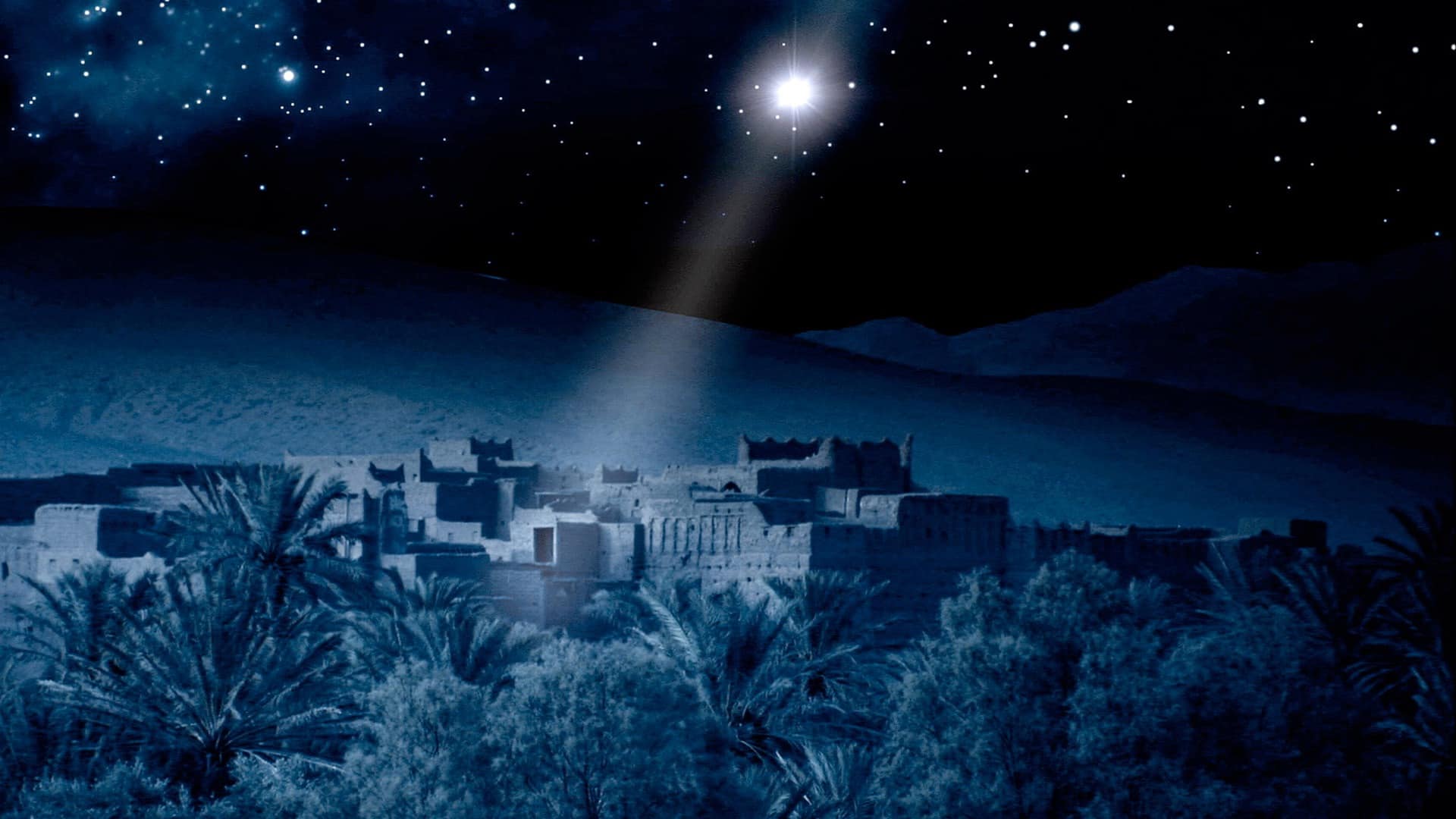Micah prophesied from Judah about both the Southern Kingdom of Judah and the Northern Kingdom of Israel. His prophetic ministry took place during at least portions of the reigns of three of Judah’s kings—“Jotham, Ahaz, and Hezekiah” (Mic. 1:1). His ministry is thought to have begun around 730 B.C. and to have ended around 690 B.C., so Micah lived and served the Lord seven hundred years before Christ was born.
A prophet’s duties often involved both “forth telling,” declaring God’s truth to people; and foretelling, revealing God’s word about the future. Micah did both, but here we will consider one of his predictive prophecies. With pinpoint precision, Micah foretold the Messiah’s birthplace: “Bethlehem Ephrathah, you are small among the clans of Judah; One will come from you to be ruler over Israel for Me. His origin is from antiquity, from eternity” (Mic. 5:2).
- Bethlehem, which is located just five miles from Jerusalem, is referred to as Ephrath in Genesis 35:16-19 (see also 48:7). These verses from Genesis clearly associate the area with Rachel, so it is no surprise that after Herod went on a rampage and slaughtered innocent Bethlehem boys in order to make sure Jesus was dead, people recalled Jeremiah 31:15, the verse quoted in Matthew 2:18. Matthew 2:18 reads, “A voice was heard in Ramah, weeping, and great mourning. Rachel weeping for her children; and she refused to be consoled, because they were no more.” The name Ramah is obviously connected with this area as well. In Ruth 4:11, Ephrathah and Bethlehem are named together.
- Bethlehem was a small and insignificant town, even though King David had been born there (see 1 Sam. 17:12). Yet Jesus would be born there (see Matt. 2:1). He would be the One who would “come from” Bethlehem “to be ruler over Israel” (Mic. 5:2). Not only would He rule over Israel (see Jer. 33:14-16), but He would rule over Israel “for Me,” with Yahweh’s authority (see John 17:4; Heb. 10:7).
- “His origin is from antiquity, from eternity,” Micah wrote. Though born centuries after Micah declared and wrote these words, Jesus actually had existed from, and in, eternity past (see John 1:1; Phil. 2:5-7; Col. 1:17; Rev. 1:8).
- In Matthew 2:6, where Matthew quoted from Micah, he included these words: “Out of you [Bethlehem] will come a leader who will shepherd My people Israel.” While Matthew quoted from Micah 5:2, the last portion of the quotation, which centers around the leader’s shepherding Israel, comes from Micah 5:4: “He will stand and shepherd them in the strength of Yahweh” (see also Mic. 2:12; 7:14). The New Testament affirms Jesus as the Good Shepherd (see John 10:1-30).
Micah’s prophecy concerning the birthplace of the Messiah was clear—so clear, in fact, that when Herod summoned “all the chief priests and scribes of the people and asked them where the Messiah would be born,” (Matt. 2:4), they said Bethlehem (see v. 5-6). While Jesus was born in Bethlehem, He went to live in Galilee (see Matt. 4:12-13), and He ministered in that area a great deal. This confused some people (see John 7:40-44). From our point of view centuries later, we have the opportunity to grasp details that others may have had difficulty understanding. The point is that we need to embrace Jesus as the Messiah, especially given all we know about Him from history and from the Bible, including Micah’s remarkable prophecy and its fulfillment in Jesus.
Copyright © 2015 B. Nathaniel Sullivan. All rights reserved.
photo credit: www.lumoproject.com
Unless otherwise noted, all Scripture quotations in this article are taken from the Holman Christian Standard Bible®, Copyright © 1999, 2000, 2002, 2003, 2009 by Holman Bible Publishers. Used by permission. Holman Christian Standard Bible®, Holman CSB®, and HCSB® are federally registered trademarks of Holman Bible Publishers.
